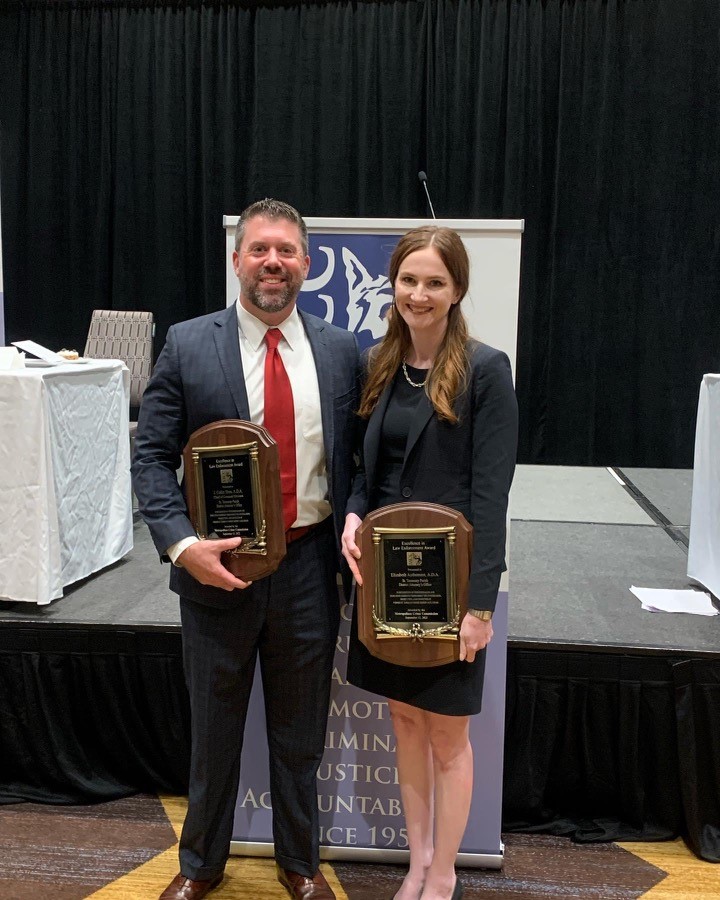Felony trials occur when cases involving
serious crimes are heard before a judge or jury.
The cases are prosecuted by Assistant District Attorneys in 10 felony trial divisions.
Felony Trials
Click here to View Contact Information for All Felony Divisions
Felony Division
The District Attorney’s office represents the People of the State of Louisiana. The Washington and St. Tammany District Attorney’s Office has the responsibility and authority to prosecute all felonies in those two parishes. Before charging a case, an Assistant District Attorney (ADA) will review the results of the police investigation and sometimes meet with witnesses involved in the case. The ADA evaluates whether there is enough evidence to prove the charges beyond a reasonable doubt. If the evidence is sufficient, the prosecutor will determine the final charges and file a Bill of Information. In some cases, the ADA may decide not to proceed with a case against a defendant. A prosecutor may decline to prosecute or “reject” a case if there is insufficient evidence or if more investigation is required. Cases are tried before the Judges in Washington and St. Tammany Parishes. For more information on the Judges, visit www.22ndjdc.org.
Felony Trial Division
The Trial Division has principal responsibility for prosecuting felony crimes. It is comprised of 10 Divisions, and a number of specialized units, which target certain types of crimes or have other specialized knowledge, training and experience. The Divisions are each staffed by an Assistant District Attorney. In addition to the legal staff and supervisors, each Division has an investigator and secretary. The Felony Division handles all felony prosecutions, including felony grade drug offenses, property crimes (such as burglaries and thefts), and crimes against persons (such as robberies, rapes and murders). Felony assistants in the specialized units develop expertise in certain types of crimes, including sex crimes, child abuse, domestic violence, elder abuse and other serious violent crime. The attorneys and investigators in the Felony Trial Division are assigned to the District Courts to prosecute felony criminal offenses that occur in Washington and St. Tammany parishes. Much of their time is spent in these courts on pre-trial matters, pleas before the court, trials, revocations, and post-trial matters. When the attorneys and investigators are not in the courtroom, they spend their time reviewing and preparing the cases for the next pre-trial matter, plea, trial, revocation or post-trial matter, including locating witnesses, interviewing witnesses and reviewing evidence.
What is a Felony
A felony class is how a state categorizes the seriousness of a crime and establishes the basic guidelines of the punishment for the crime. The more serious the crime, the more severe the penalty. Generally, a felony is defined as a crime in which the offender may be sentenced to hard labor, meaning the imprisonment will be served in a prison facility rather than a county or local jail establishment. Each state establishes it’s own definition of felony class based on the legal interpretation of state statutes. The state also determines the severity of the penalty which may include incarceration, fines and restitution. The actual penalty is determined based on criminal history and nature of the crime. The law will define the range which is the minimum and maximum penalty that can be imposed for each felony. The information contained in this article should not be construed as legal advice, and those accused of a crime should seek legal counsel immediately.
Timeline
The time it takes to resolve a case will vary from case to case. Most cases are resolved quickly, i.e. within several months of entering the court system. However, more complicated cases require more time to resolve. Homicides, sex crimes and similarly complex cases sometimes take more than one year to be resolved. Felony cases generally go through several stages: arraignment, motions, pre-trial and trial.
“Why Did I Become a Prosecutor?”
Listen to our Assistant District Attorneys answer questions about the life of a prosecutor. This is an ongoing program internal to our office.
Contact
Felony Divisions A-J and Special Prosecutors
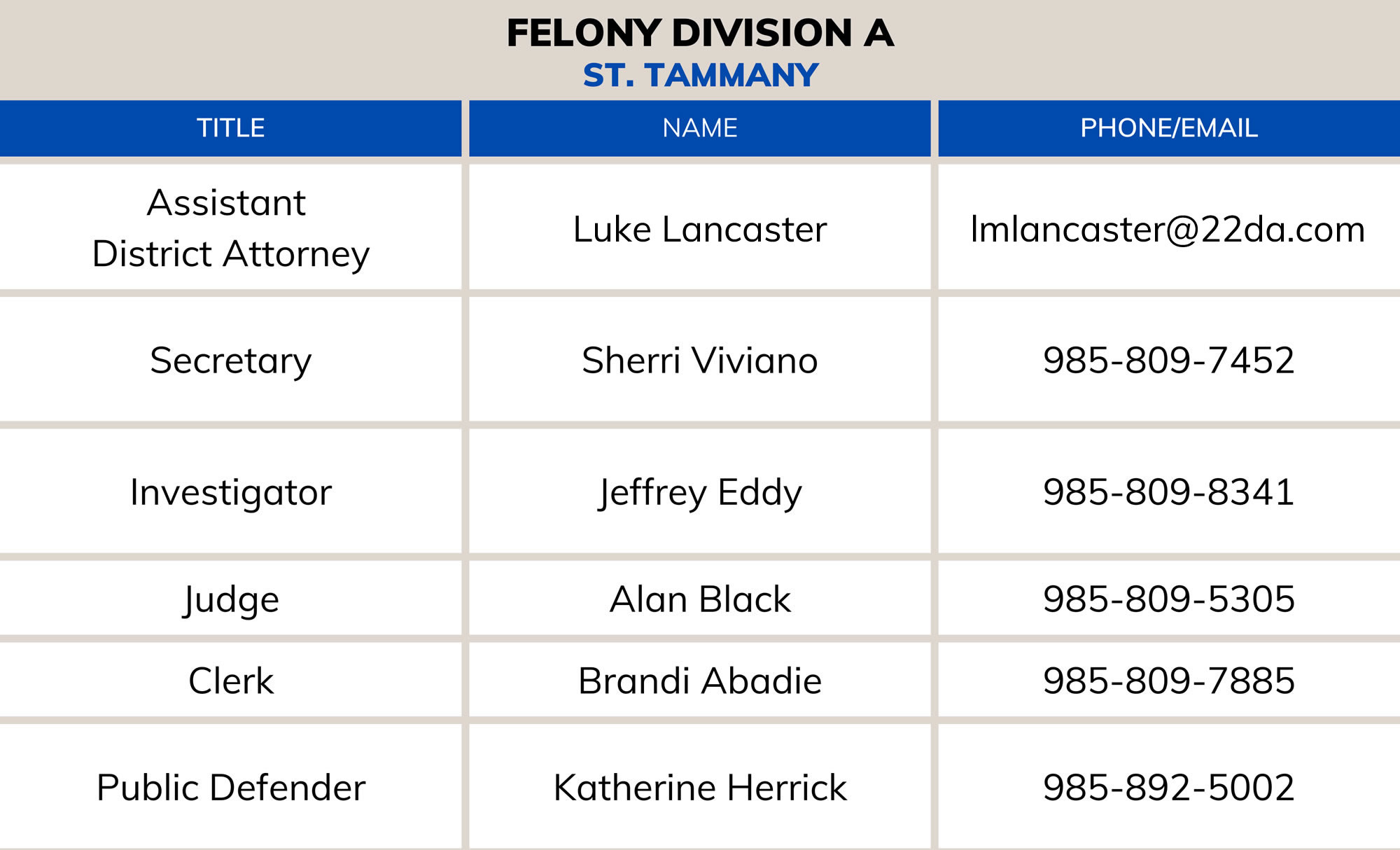 |
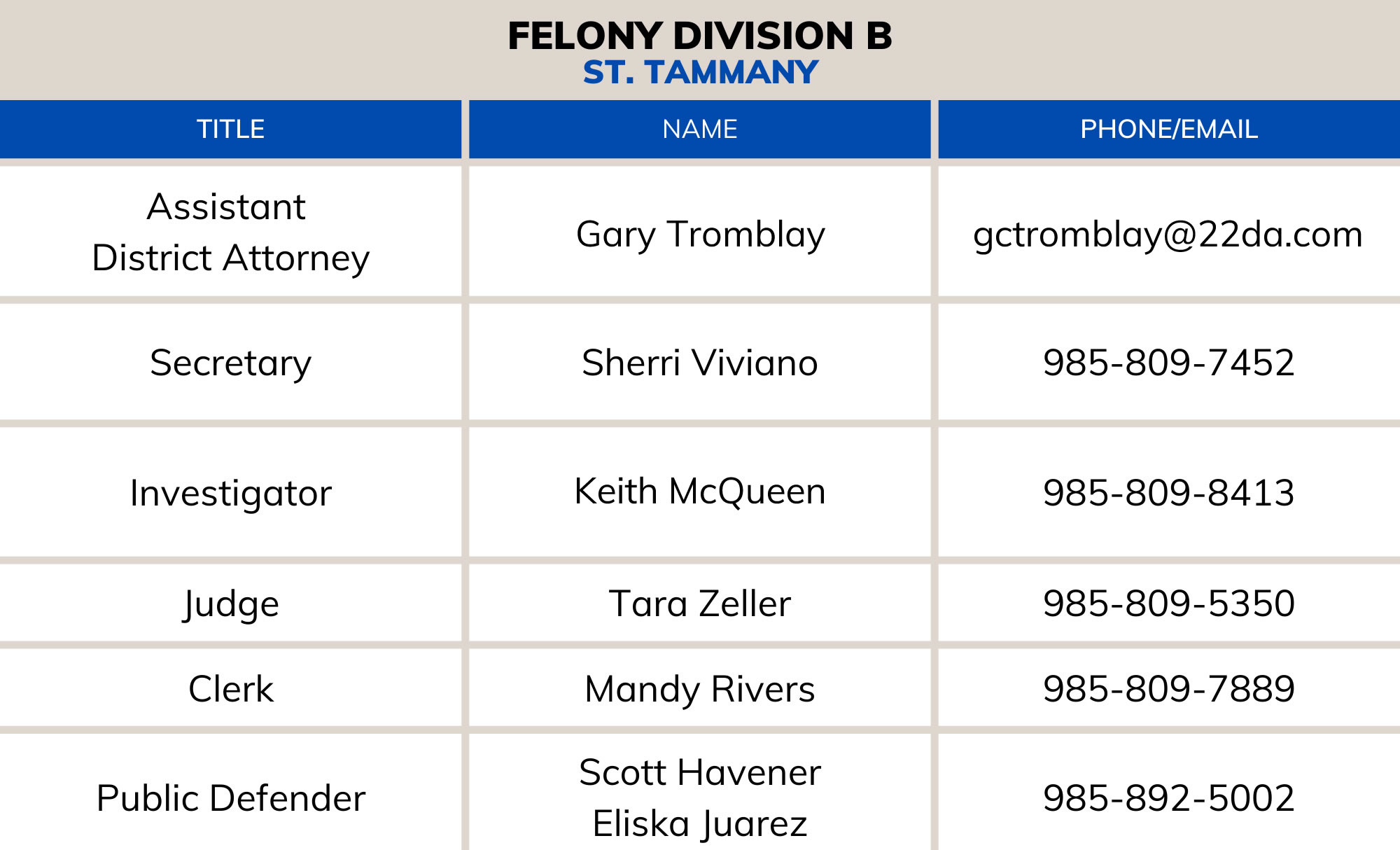 |
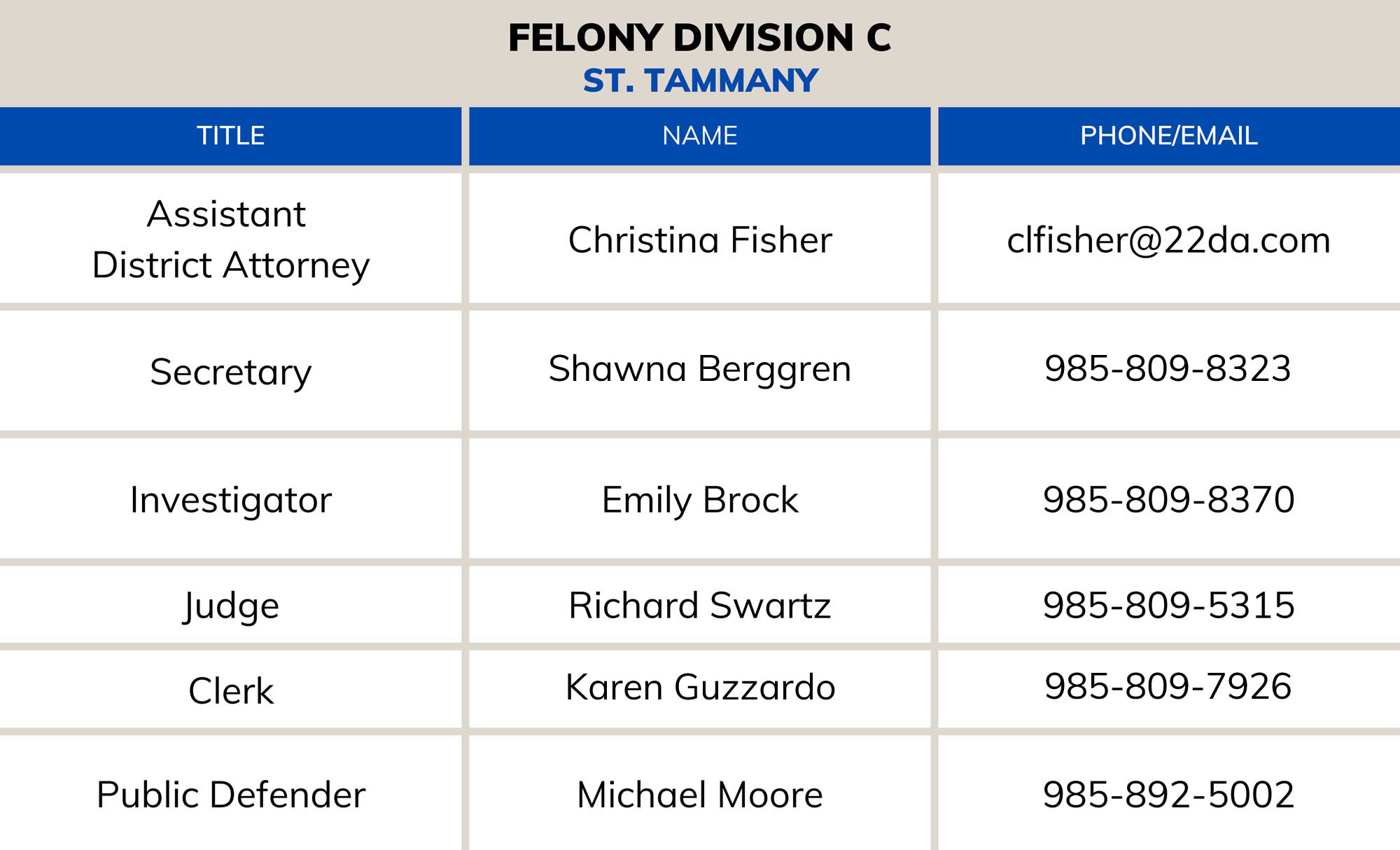 |
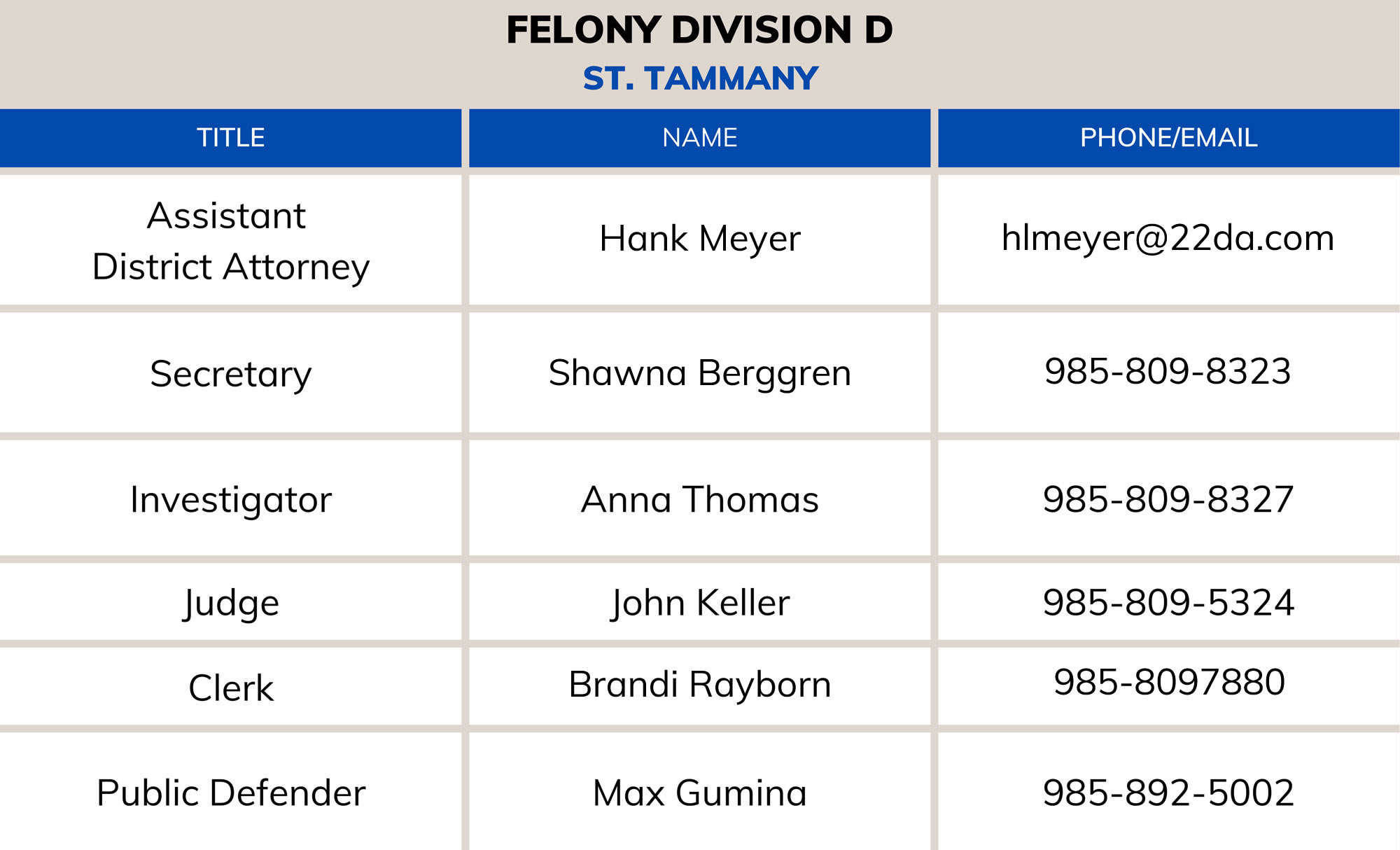 |
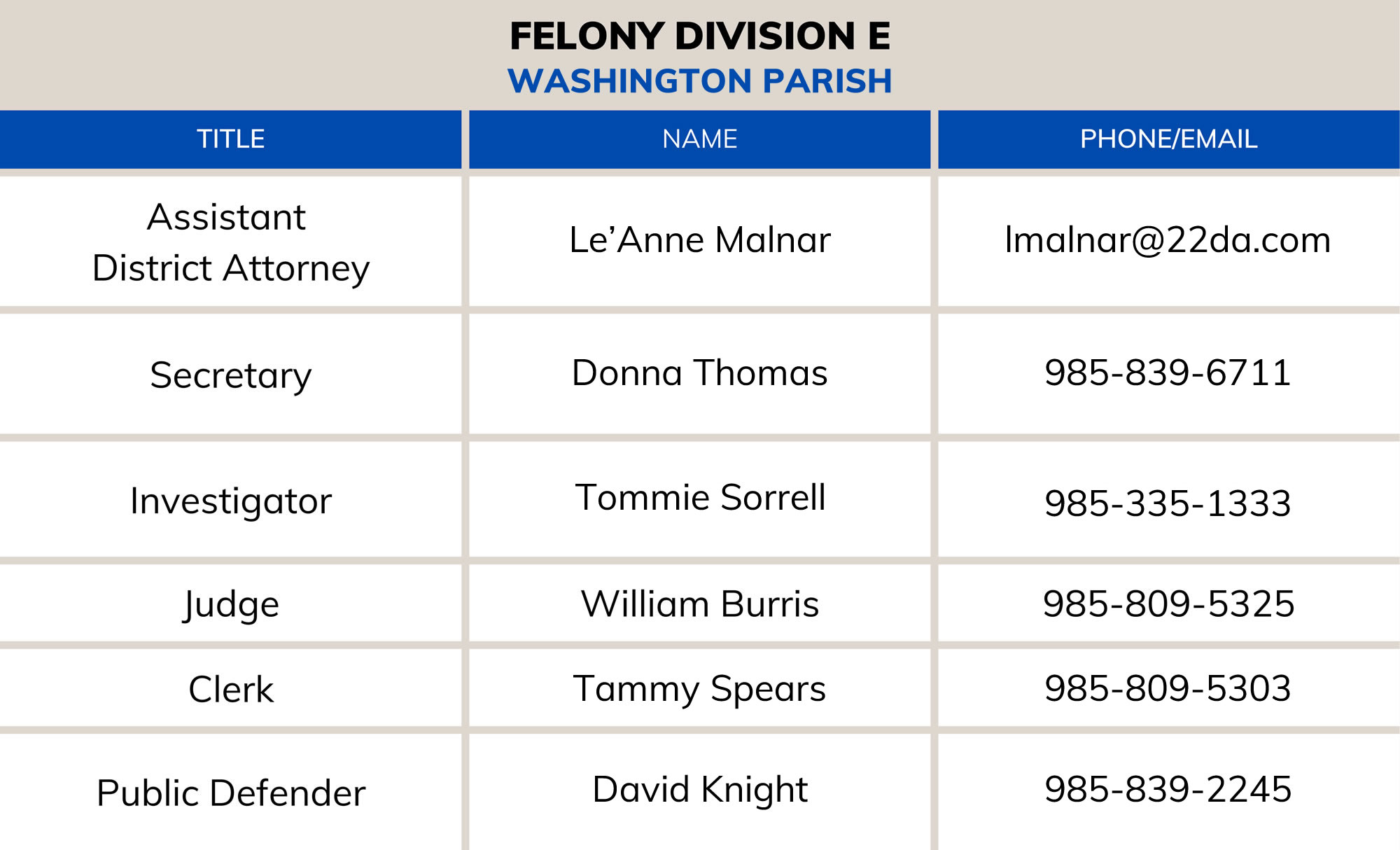 |
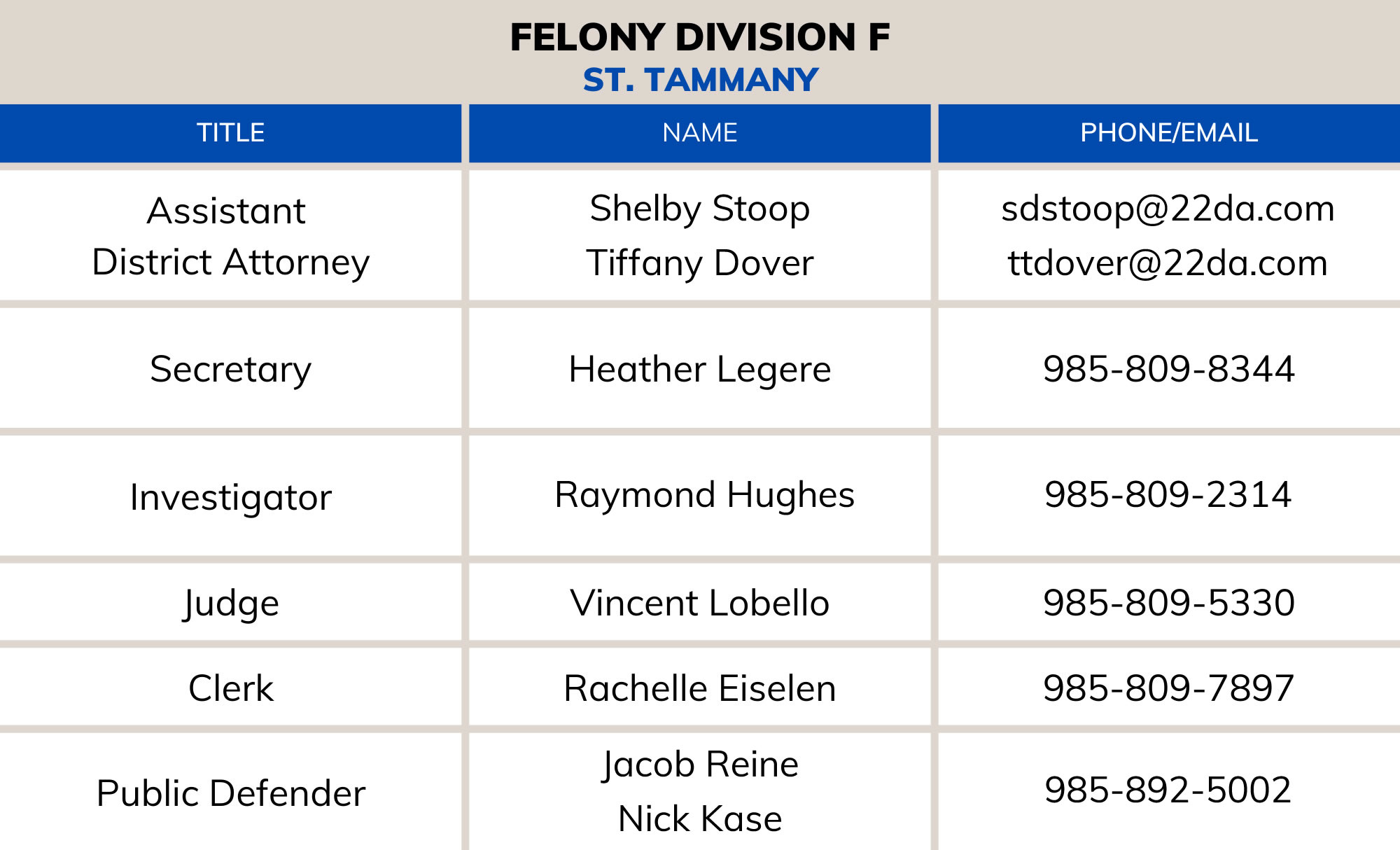 |
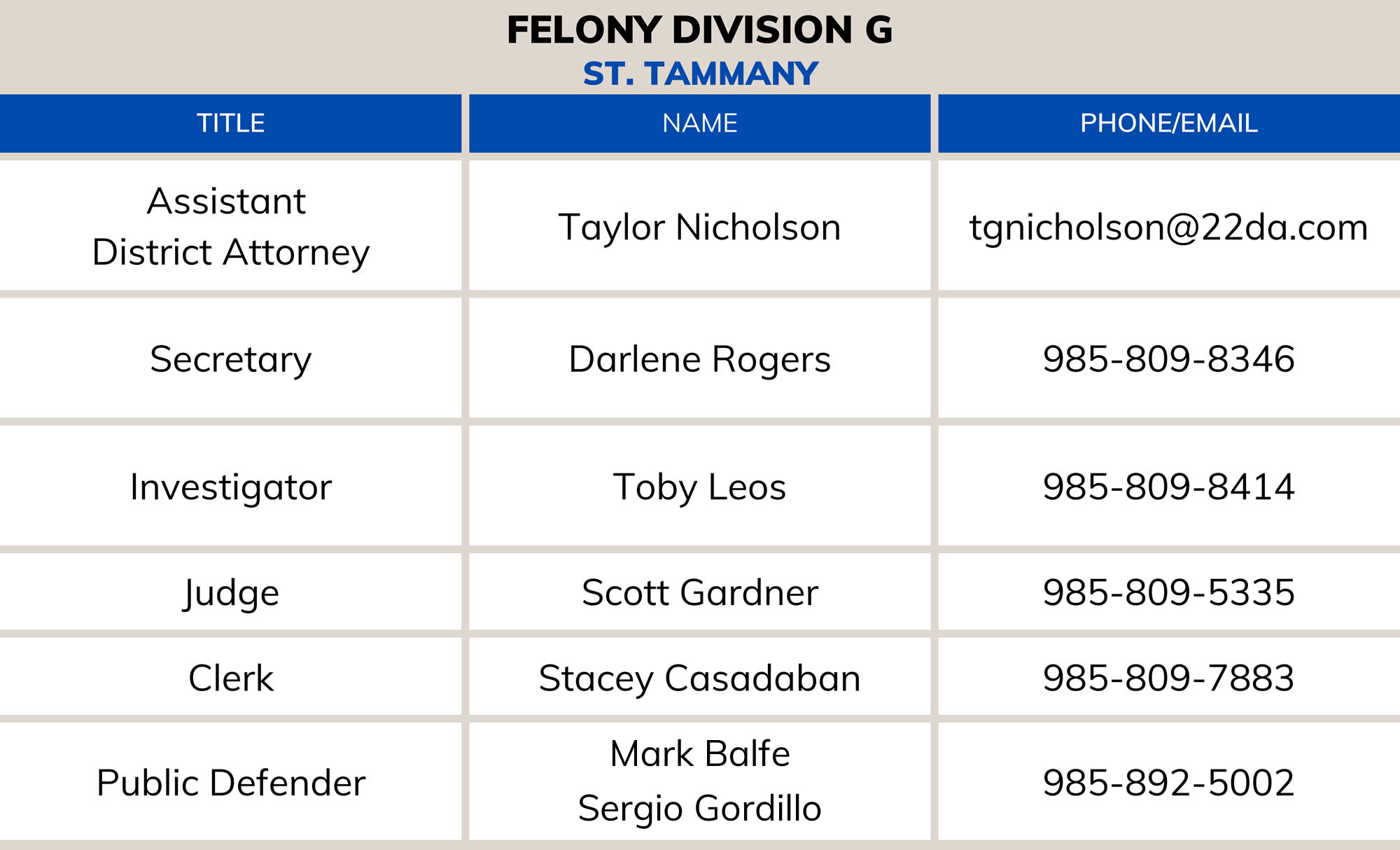 |
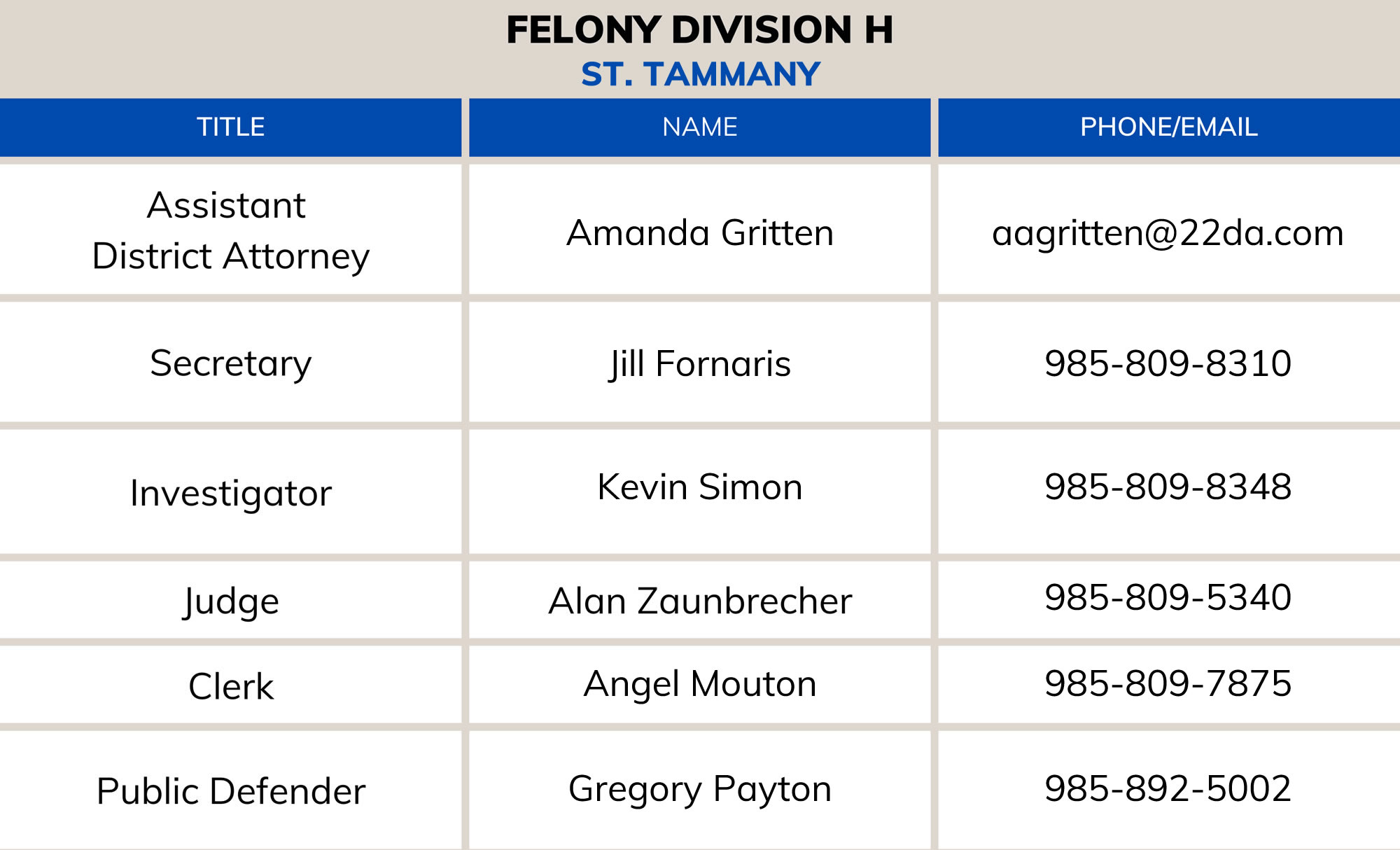 |
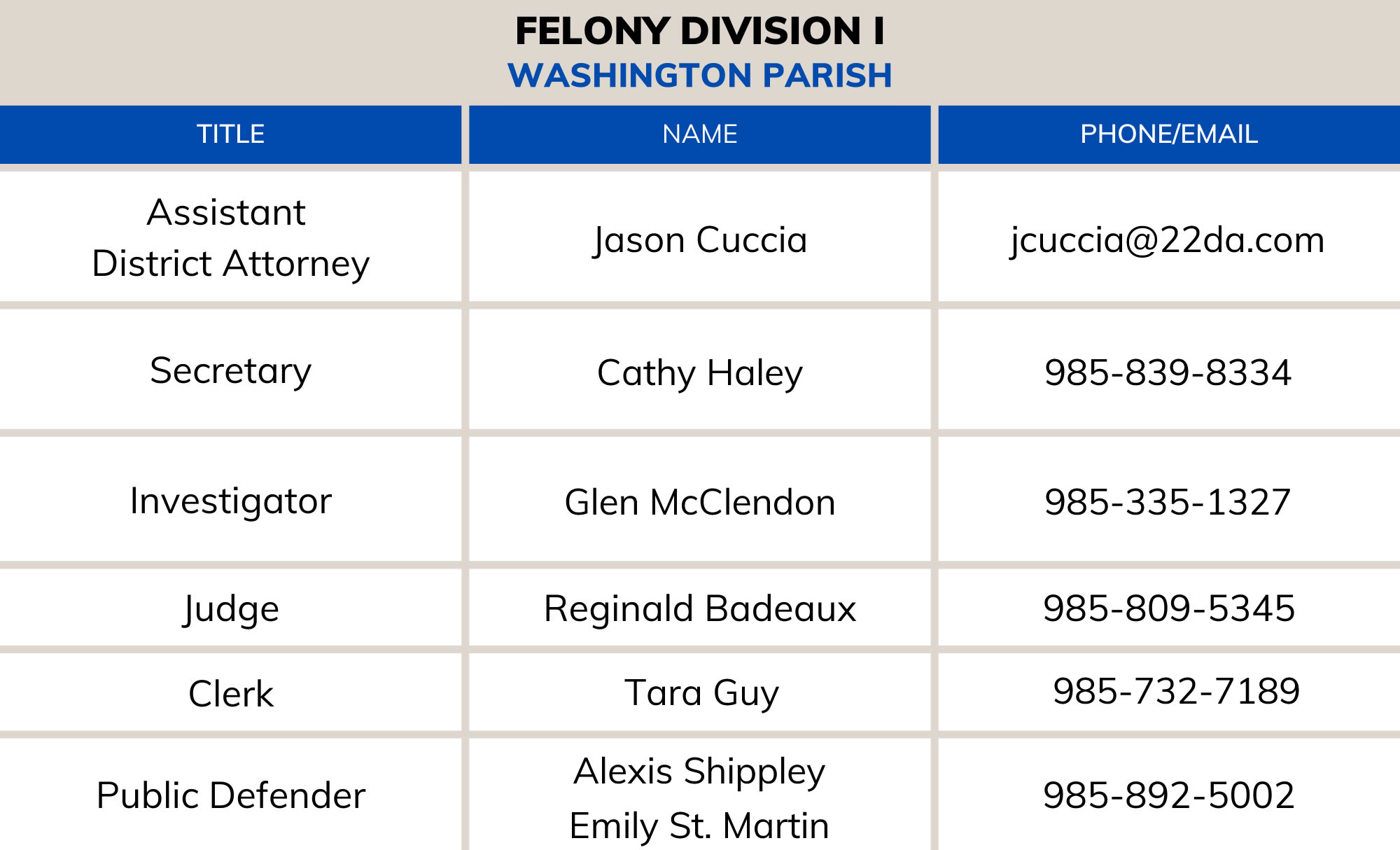 |
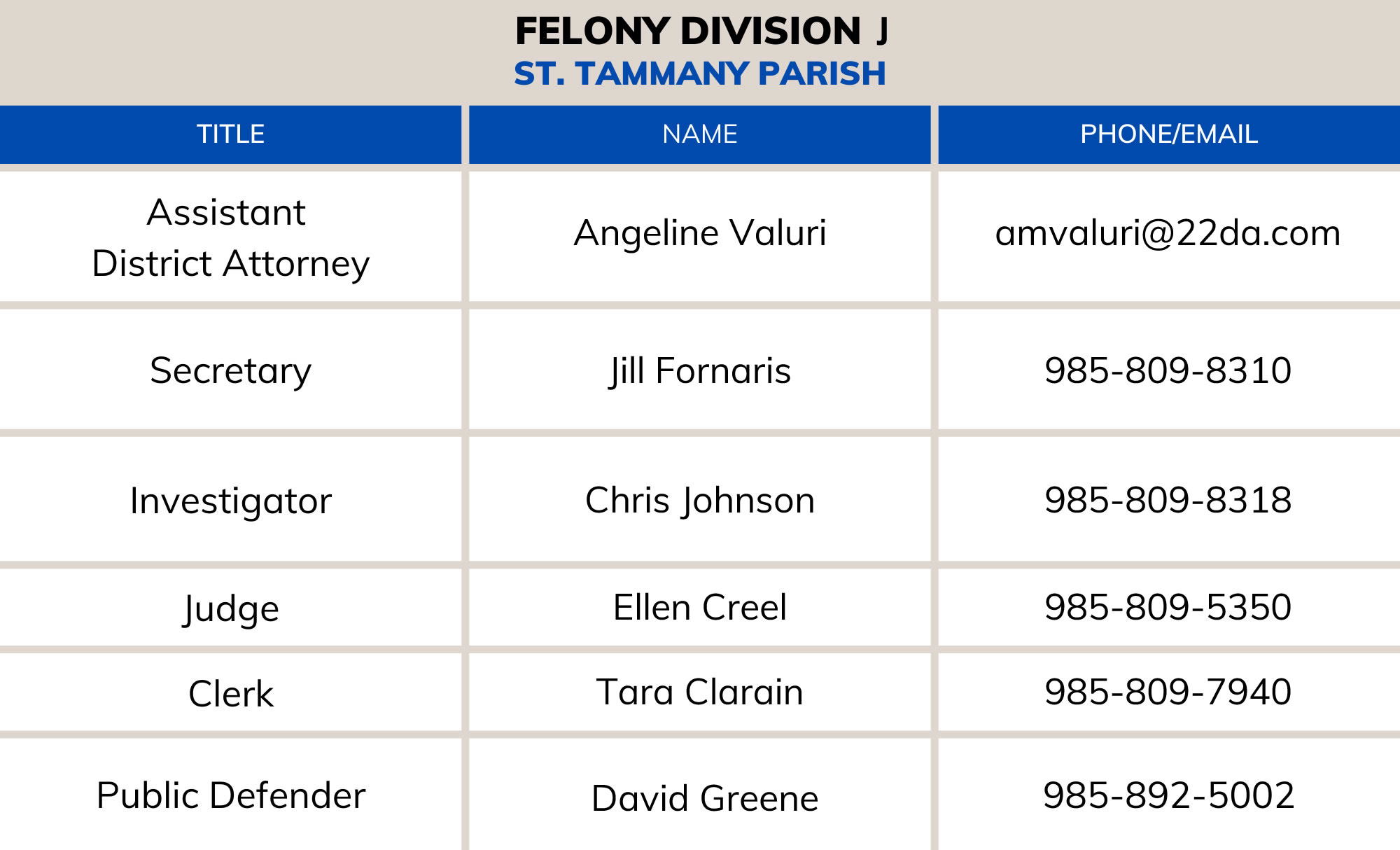 |
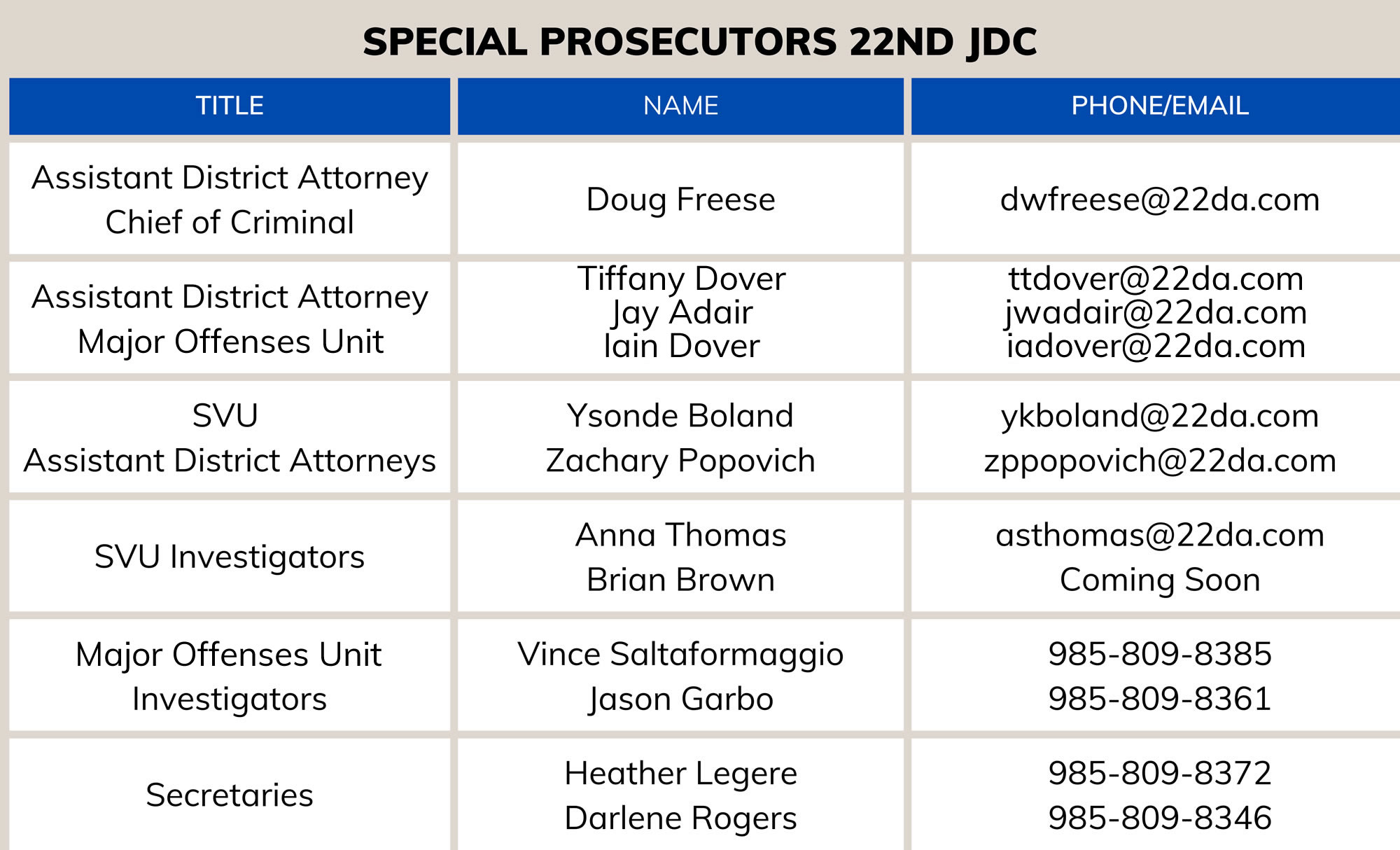 |
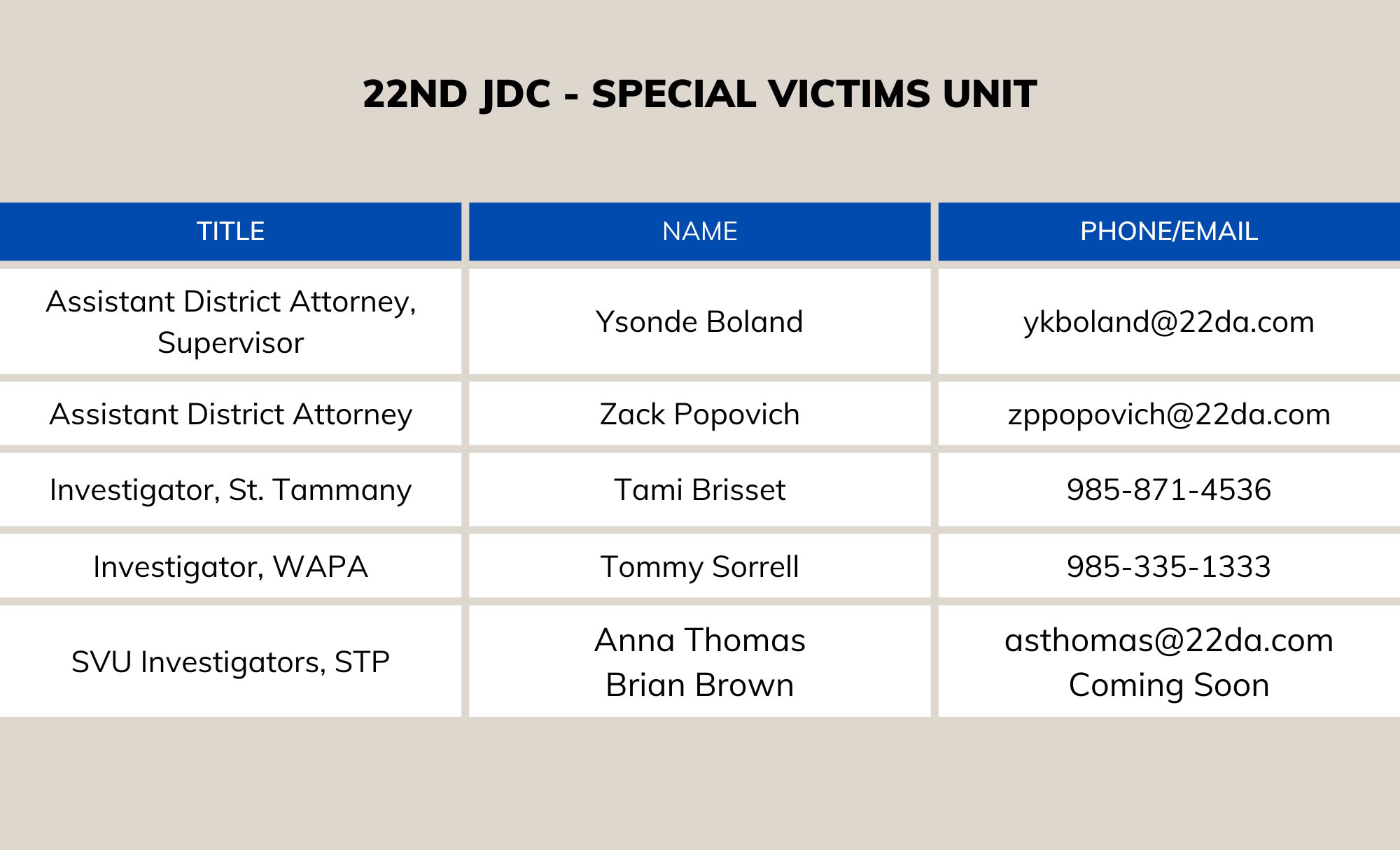 |
FAQs
If I am a witness, when do I have to appear in court?
At the date and time on your Summons unless the party that issued the Subpoena has indicated to you otherwise.
How long will this case take to complete?
All cases are different. It depends on the circumstances of your case. Please speak to your attorney if you are a defendant or to the District Attorney’s Office if you are a witness.
How can I find out what my charges are and what the possible penalties are?
You will be informed of your charges at your arraignment in court. Your arraignment frequently occurs at your first court appearance. Once you know what your charges are, you can discuss the possible penalties with your attorney. The DA’s Office cannot provide this information to you.
What is diversion/PIP?
Please see our section on diversion/PIP.
If I am the victim in a case, is the prosecutor my attorney?
No. The prosecutor represents the State of Louisiana. However, the District Attorney’s Office does provide assistance and services to victims. Please see our section on the Victim Assistance Division for further information.

